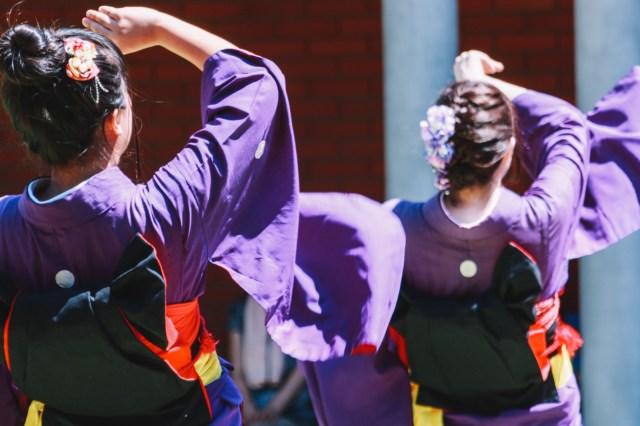Japan petitions to add 40 traditional folk dances to UNESCO’s Intangible Cultural Heritage list

If approved, the new additions would join one dance already on the list under the collective title of “Elegant Dances.”
On February 12, Japan’s Agency for Cultural Affairs, a special body of the Ministry of Education, Culture, Sports, Science and Technology (MEXT), voted to move ahead with their application to register a number of traditional folk dances from around the country on UNESCO’s Representative List of the Intangible Cultural Heritage of Humanity. This list contains cultural “practices and expressions [that] help demonstrate the diversity of this heritage and raise awareness about its importance.” There are currently 22 practices on the list representing Japan which include Japanese food (washoku), Japanese paper (washi), and the most recently registered “Traditional skills, techniques and knowledge for the conservation and transmission of wooden architecture in Japan.”
The new proposal collectively groups these folk dances, which include ones celebrating the Bon Festival, annual celebrations, and even Buddhist incantations (Nenbutsu Odori), under the umbrella term of Furyu Odori (風流踊)–literally, “Elegant Dances.” Furyu Odori are derived from various regions of Japan and reflect unique local histories and spiritual beliefs–typically involving live musical accompaniment in the form of bells, drums, and flutes as well. All of the dances on the bid are already listed as Important Intangible Folk Cultural Properties within Japan.
▼ One of the dances on the list: Akita Prefecture’s Nishimonai Bon Odori (西馬音内の盆踊), which is watched by an average of 80,000 spectators every year.
While the Agency had actually submitted a proposal to UNESCO last year for the inclusion of Furyu Odori, the final decision was ultimately postponed. Perhaps that was for the best, however, because in the time that has elapsed the committee was able to add an additional four dances to the bid: Nagano Prefecture’s Niino Bon Odori (新野盆踊), Gifu Prefecture’s Kanomizu no Kake Odori (寒水の掛踊), Nagasaki Prefecture’s Tsushima Bon Odori (対馬の盆踊), and Kumamoto Prefecture’s Nohara Hachimangu’s Furyu (野原八幡宮風流).
If the proposal is successful, the dances would join Kanagawa Prefecture’s traditional Japanese New Year‘s dance known as Chakkirako (チャッキラコ), already registered on the list since 2009, for a total of 41 Furyu Odori spanning 24 prefectures.
The Agency will next need to receive a formal declaration of support from the government. If all goes as expected, a written proposal would then be submitted to UNESCO in mid-March. Unfortunately, we’ll need to wait for some quite some time regardless to hear a final decision from UNESCO, as the proposal wouldn’t next be reviewed until November 2022 at the earliest.
Sources: NHK News, Asahi Shimbun
Top image: Pakutaso
● Want to hear about SoraNews24’s latest articles as soon as they’re published? Follow us on Facebook and Twitter!
Credit:

0 comments:
Post a Comment